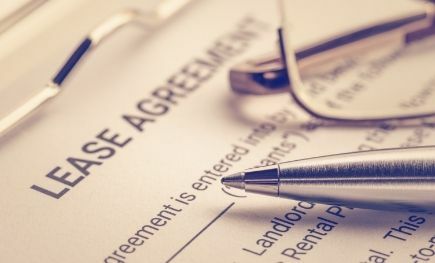As the coronavirus pandemic carries on, many creditors, including landlords and lenders, are wondering to what extent they can enforce leases and contracts, given various relief programs that have been instituted by federal, state, and local governments, such as eviction and foreclosure moratoriums. Below are a couple of scenarios describing such circumstances and answers to address each.
Q: My commercial tenant has been shut down or forced to reduce operations because of COVID-19, and now the tenant cannot pay its rent. Can I sue to evict?
A: It depends on your jurisdiction.
In Virginia, commercial landlords can utilize all legal means that existed before the COVID-19 pandemic to evict tenants and sue for unpaid rent. Landlords may file unlawful detainer actions for possession of property and for due and unpaid rent in the appropriate General District Court, regardless of any COVID-19 related impacts on their tenants. A previous temporary moratorium on the service of writs of eviction by Sheriffs, (which are writs issued after a landlord obtains a successful ruling in Court) expired on September 7 after the Supreme Court of Virginia voted 4-3 to deny Governor Northam’s request to extend such moratorium.
In Maryland, commercial landlords can file Failure to Pay Rent actions in the appropriate District Court to recover possession of property and sue for past due rent. However, by Order of Governor Hogan, a commercial tenant has the ability to present as an affirmative defense in such cases, only to forestall eviction (but not to prevent a money judgment for rent), that it has suffered a “substantial loss of income” due to COVID-19. It is the tenant’s burden to prove this affirmative defense by submitting appropriate documentation or other evidence to the Court hearing the matter. The Governor’s Order acts a suspension of but not an elimination of the right of eviction, meaning that once the Order is rescinded, evictions in such cases can proceed. The Governor’s Order does not affect the ability of a commercial landlord to sue and obtain a judgment for money damages on account of past due rent as provided for under law.
In the District of Columbia, until 60 days after the end of the public health emergency declared by Mayor Bowser, (or March 1, 2021 based on the currently established emergency period), commercial landlords may not institute cases in the Landlord Tenant Branch of the Superior Court to seek eviction of tenants. Moreover, the District of Columbia Council has passed a statute that requires many commercial landlords to accept requests from their tenants to enter into rent payment plans until one year after the end of the public health emergency, (or December 31, 2021 based on the currently established emergency period). Generally, landlords must approve and agree to payment plans that provide for waiver of interest and late fees and that provide for monthly installment payments of rent for a minimum of one year if the tenant claims that it has suffered “directly or indirectly” as a result of COVID-19. A landlord must further agree that, so long as the tenant abides by the agreed payment plan, the tenant will not lose any rights under its lease. In other words, if the payment plan is adhered to, a landlord cannot declare a default under a lease or accelerate future rent, even if the tenant would have been default under the lease but for the payment plan. Even if a payment plan is not requested by the tenant, a landlord is still restricted from exercising judicial remedies at the present time because most court-related deadlines are suspended during the public health emergency. This means that, even if a landlord files a complaint in Superior Court for a money judgment for past due rent, a tenant would have no obligation to respond to such lawsuit until, at the earliest, 21 days after the end of the public health emergency.
Q: I lent money to a business that has been shut down or forced to reduce operations because of COVID-19, and now the debtor cannot make its payments. What are my options?
A: Again, much depends on your jurisdiction.
In Virginia, a lender is free to pursue all non-judicial and judicial legal collection activities against delinquent debtors that were available prior to the pandemic. These activities include sending demand letters, accelerating loans, and instituting lawsuits for collection.
In Maryland, a lender is also free to pursue most all legal remedies that were available prior to the pandemic. The one exception is that a lender may not garnish any monies a debtor may have received under the CARES Act, whether in the form of a PPP loan, tax refunds, or an EIDL Loan.
In the District of Columbia, commercial lenders (but not consumer lenders) can send demand letters and accelerate loans. However, judicial options are more limited. Although filing debt collection cases is technically permitted, most deadlines to respond to lawsuits are suspended until at least November 9. This includes suits for collection and garnishment actions.
Look for future articles addressing additional and pressing creditors rights questions in the coming weeks. If you have questions or need any assistance, please contact Blake Frieman at (703) 526-4714 or bfrieman@beankinney.com.
This article is for informational purposes only and does not contain or convey legal advice. Consult a lawyer. Any views or opinions expressed herein are those of the authors and are not necessarily the views of any client.

